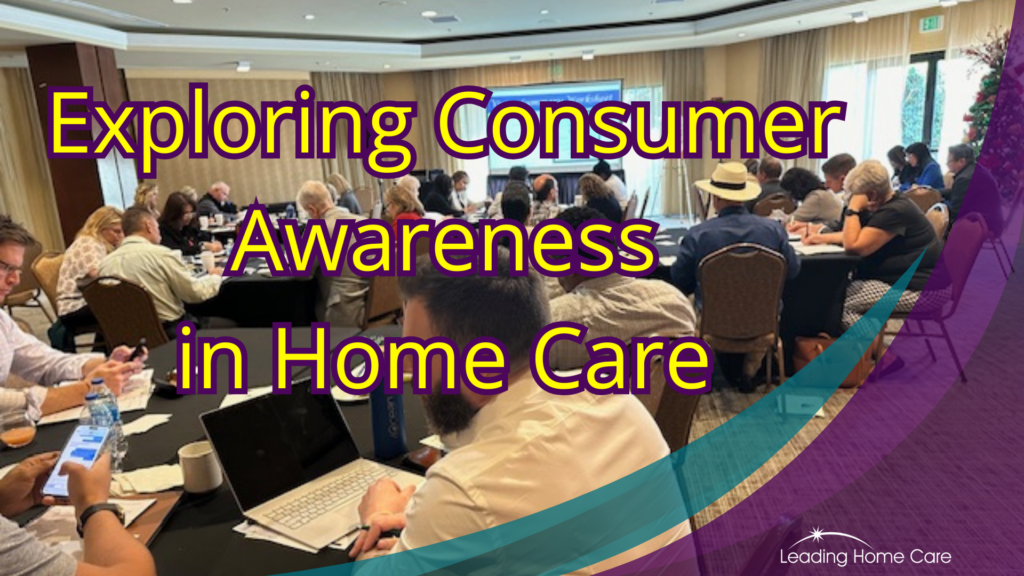We just got a note and a copy of an article from our friend and colleague, Ginny Kenyon about why new home care companies fail. It’s right on target.
While you may not be a new start up, check these six things to see if they apply to you.
Want to Start a Home Care Business? 6 Reasons Why You’ll Fail
by Ginny Kenyon
Starting a business is risky, in any industry. But more home care startup businesses experience failure within their first year of business, making the idea of opening a new agency even riskier for entrepreneurs.
Most startup failures share similar mistakes that helped close their doors. From not having enough financial resources from the beginning to not creating a detailed business plan, there are many reasons a startup home care business fails—and just as many ways you can avoid them so that your home care agency succeeds for years to come.
1. Not Enough Financial Resources
Money is usually a reason any type of home care startup fails. Without sufficient financial resources, your home care agency cannot properly staff and equip your organization. Most agencies simply do not realize how much money they need to get started, which is as follows:
- A non-skilled home care agency should have at least $40,000 to $60,000 in reserve to get started
- A skilled agency should have $60,000 to $80,000
- A Medicare home care agency should have $150,000 to $300,000
If you don’t have the appropriate type of financial reserve, you obviously want to seek out and secure financing or wait until you have adequate resources to start your home care business.
2. Lack of Due Diligence
A lot of home care startups fail because of their lack of due diligence. When start a home care business, you should extensively research your demographics, the demand in your area, and an analysis of your competitors. Startups that open in areas that are not in high demand won’t have enough clients to support their business. This, of course, leads to not enough revenue to stay open for business.
If you start a home care business in a highly competitive region, you may find it difficult to beat out the competition without your own unique selling point. So before you ever even think about opening a new agency, think about what makes you different, what makes you better, what makes your services superior to your local competitors.
3. No Business Plan
Every business, regardless of industry, needs a business plan. Business plans are not just for securing financing; they are guides that tell you where your business should be in a year, five years, and even ten years in the future. These guides help you allocate funding, identify training requirements, and help plan for expansion.
Your business plan should also include extensive budgeting. Since most home care startups do not earn profits in the first few years, your business plan should lay out how you will pay your bills, expected income, and other costs during this period.
4. Lack of Imagination in Services
Your home care startup needs a unique selling point. If your agency only focuses on elderly care, you are alienating a large pool of potential business. It is not just elderly clients seeking out home care agencies. In fact, many teens and young disabled adults need home care as well. For example, some additional service areas to consider include:
- Maternal care and assistance
- Post-surgical care and assistance
- Sick child care
All of these unique services add additional clients to your business and may give you an edge over the competition.
5. Not Giving Yourself Time
If you currently work full-time, starting up a home care agency is next to impossible. You need to have time to focus on your clients, marketing efforts, and administrative duties. It takes full-time focus to start a home care business, which means it should be your first priority.
6. Sales and Marketing Skills Are Lacking
Opening your doors and even starting a website are not enough to make your home care startup succeed. You need to adequately market and advertise your business. To sell your unique services to the public and make yourself stand out among the competition, you need to create a brand and establish yourself as an industry leader—all of which takes extensive marketing. Many home care agencies assume they don’t need a strategic marketing plan, but this aversion to sales and marketing usually leads to their downfall.
To help make your home care startup succeed, consider hiring a home care consultant. An experienced consultant can help you with every aspect of starting your agency—from creating a business plan to establishing your budget to even creating a sales and marketing plan. Kenyon HomeCare Consulting has helped countless home care startups succeed, even in highly competitive markets. Schedule an appointment today to learn more about how to setup and accelerate the growth of your home care agency.
Ginny Kenyon is the founder and CEO of Kenyon HomeCare Consulting, a home health consulting firm that gives agencies a market advantage, promotes creative product development, and offers viable ways to achieve and sustain organizational and fiscal success. This article first appeared on the Kenyon HomeCare Consulting blog.
is the founder and CEO of Kenyon HomeCare Consulting, a home health consulting firm that gives agencies a market advantage, promotes creative product development, and offers viable ways to achieve and sustain organizational and fiscal success. This article first appeared on the Kenyon HomeCare Consulting blog.




